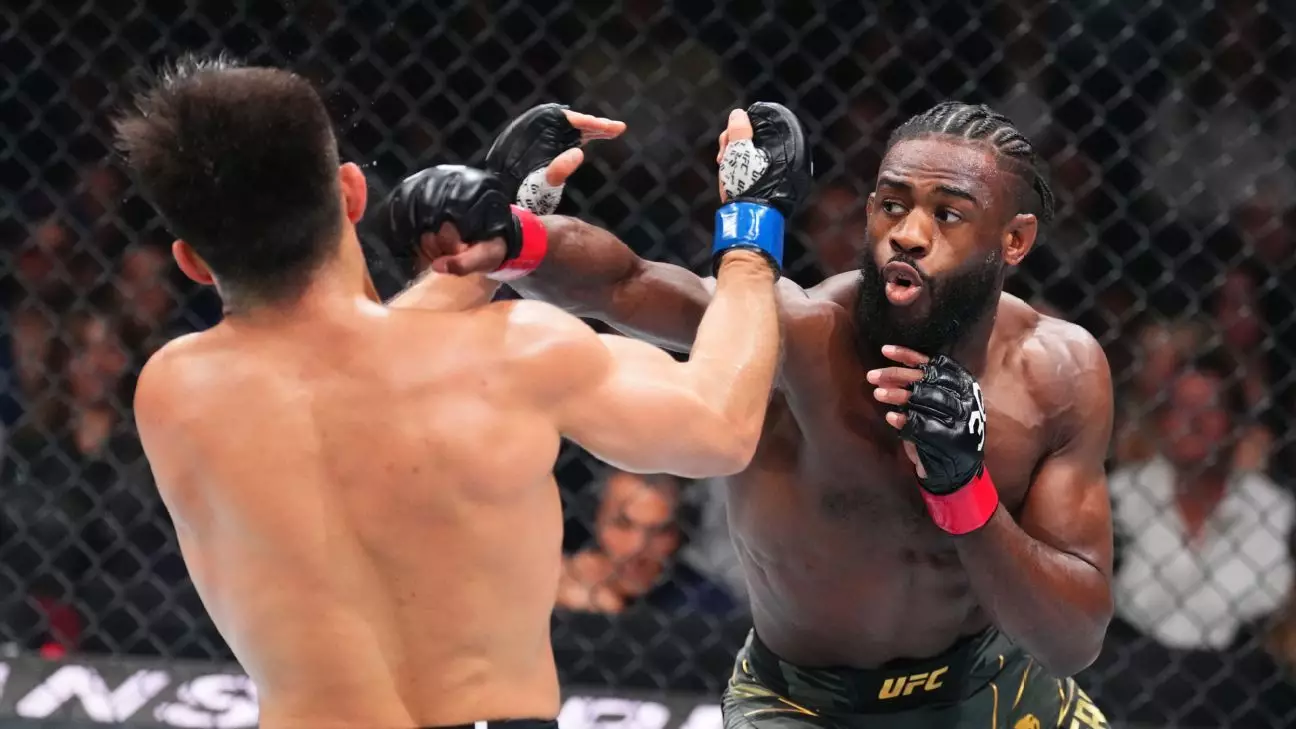In the world of mixed martial arts (MMA), injuries can derail even the most anticipated matchups, as seen with Aljamain Sterling’s recent pullout from his bout against Movsar Evloev at UFC 307. Sterling, the former bantamweight champion, was primed to make another appearance following his transition to the featherweight division. His unexpected withdrawal has stirred conversations regarding not only his future but also the implications for both fighters involved.
Aljamain Sterling sustained his injury during sparring, a common occurrence in the intense training regimen fighters undertake. In a revealing YouTube video, he shared details about his shoulder injury and his attempts at recovery, including treatments with stem cells and rehabilitation at the UFC Performance Institute. Despite his efforts, Sterling communicated that the situation had become beyond his control—a harsh reality that athletes often face. Fortunately, the prognosis indicates that surgery won’t be necessary, leaving a glimmer of hope for a swift recovery.
Sterling’s situation is illustrative of the physical toll that high-caliber competition can take. As he transitions to a new weight class, the adjustment to fighting at featherweight presents its own set of challenges, particularly in managing health and conditioning. With his current ranking at No. 9 in the featherweight division, his ability to rehabilitate effectively and return to form will be critical in determining his standing in the division.
Movsar Evloev, ranked No. 6, has been a formidable presence in the featherweight category. Known for his grappling prowess and undefeated record, Evloev’s last fight was a decision victory over Arnold Allen. The cancellation of his matchup with Sterling inevitably alters his trajectory, as he had anticipated a chance to further solidify his position in the UFC hierarchy against a former champion.
With both fighters having acclaim in the featherweight space, the loss of this match creates a ripple effect. Potential title implications and contender relevance will be put on hold, leaving Evloev with unanswered questions regarding his next fight, while Sterling’s postponement raises concerns about how this injury could impact his journey at 145 pounds.
Looking Ahead: Rescheduling and Opportunities
Sterling has expressed hope for a rescheduled bout with Evloev in December, a move that would benefit both fighters if they can return to the octagon sooner rather than later. This opportunity could serve as a pivotal moment in Sterling’s new career path at featherweight, allowing him to re-establish momentum after moving up from bantamweight. Meanwhile, Evloev remains in the win column, with his performances thus far presenting him as a strong candidate for future title contention, regardless of the timing of their match.
While Aljamain Sterling’s injury poses challenges, it also opens up dialogues about resilience in the sport, the future of the featherweight division, and the unpredictable nature of professional fighting. As fans and analysts alike watch closely, the ultimate outcome of this situation will shape not only Sterling’s trajectory but also contribute to the broader narrative in UFC’s competitive landscape. The path for both fighters remains uncertain, but the possibility for their fierce rivalry to come to fruition in the near future remains tantalizing.


Leave a Reply